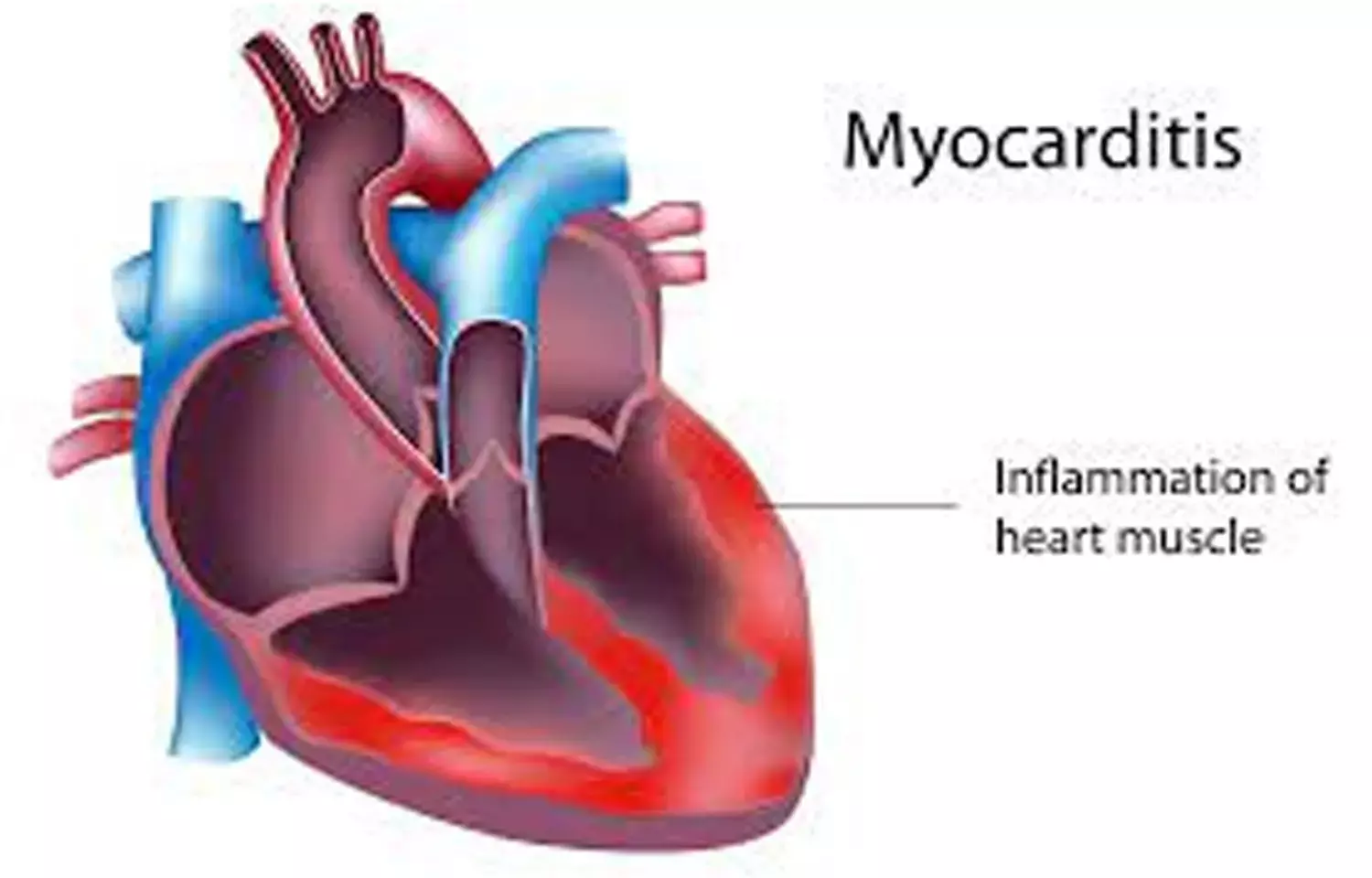- Home
- Medical news & Guidelines
- Anesthesiology
- Cardiology and CTVS
- Critical Care
- Dentistry
- Dermatology
- Diabetes and Endocrinology
- ENT
- Gastroenterology
- Medicine
- Nephrology
- Neurology
- Obstretics-Gynaecology
- Oncology
- Ophthalmology
- Orthopaedics
- Pediatrics-Neonatology
- Psychiatry
- Pulmonology
- Radiology
- Surgery
- Urology
- Laboratory Medicine
- Diet
- Nursing
- Paramedical
- Physiotherapy
- Health news
- Fact Check
- Bone Health Fact Check
- Brain Health Fact Check
- Cancer Related Fact Check
- Child Care Fact Check
- Dental and oral health fact check
- Diabetes and metabolic health fact check
- Diet and Nutrition Fact Check
- Eye and ENT Care Fact Check
- Fitness fact check
- Gut health fact check
- Heart health fact check
- Kidney health fact check
- Medical education fact check
- Men's health fact check
- Respiratory fact check
- Skin and hair care fact check
- Vaccine and Immunization fact check
- Women's health fact check
- AYUSH
- State News
- Andaman and Nicobar Islands
- Andhra Pradesh
- Arunachal Pradesh
- Assam
- Bihar
- Chandigarh
- Chattisgarh
- Dadra and Nagar Haveli
- Daman and Diu
- Delhi
- Goa
- Gujarat
- Haryana
- Himachal Pradesh
- Jammu & Kashmir
- Jharkhand
- Karnataka
- Kerala
- Ladakh
- Lakshadweep
- Madhya Pradesh
- Maharashtra
- Manipur
- Meghalaya
- Mizoram
- Nagaland
- Odisha
- Puducherry
- Punjab
- Rajasthan
- Sikkim
- Tamil Nadu
- Telangana
- Tripura
- Uttar Pradesh
- Uttrakhand
- West Bengal
- Medical Education
- Industry
ESC 2023 Update: Anakinra is safe but did not increase the number of days free of myocarditis complications: ARAMIS trial

France: ARAMIS, the largest randomised controlled trial of acute myocarditis, revealed that a short course of anakinra did not increase the number of days free of myocarditis complications. However, there were no safety issues with anakinra administration during the acute phase of myocarditis diagnosed without endomyocardial biopsy, and therefore no proof of viral status.
The researchers found that anakinra is safe but does not reduce complications. The late-breaking research was presented in a Hot Line session at ESC Congress 2023.
Acute myocarditis is an inflammation of the myocardium that can cause permanent damage to the heart muscle and lead to myocardial infarction, stroke, heart failure, arrhythmias and death. The disease can occur in individuals of all ages, but is most frequent in the young. There are no specific therapies, and patients are generally treated with beta-blockers, ACE inhibitors and sometimes steroids, in accordance with an ESC expert consensus. Anakinra is an interleukin-1 receptor antagonist that works by targeting the interleukin-1β innate immune pathway. While anakinra is effective in pericarditis,3,4 there are only case reports of successfully treated acute myocarditis.
ARAMIS was the largest randomised controlled trial of acute myocarditis and the first to evaluate inhibition of the interleukin-1β innate immune pathway in these patients. The trial enrolled hospitalised, symptomatic patients with increased cardiac troponin and acute myocarditis diagnosed using cardiac magnetic resonance (CMR) imaging. Patients were randomly allocated in a 1:1 ratio within 72 hours of hospital admission to a daily subcutaneous dose of anakinra 100 mg or placebo until hospital discharge. Patients in both groups received standard of care treatments, including an ACE inhibitor for at least one month. The primary endpoint was the number of days free of myocarditis complications (heart failure requiring hospitalisation, chest pain requiring medication, left ventricular ejection fraction <50%, and ventricular arrythmias) within 28 days post-discharge.
The study included 120 patients from six academic centres in France. A total of 117 patients were included in the intention-to-treat analysis. Consistent with prior data, the median age of participants was 28 years and nearly 90% were men. Overall, the rate of the composite endpoint of myocarditis complications occurred in 13.7% of patients. There was no difference in the number of days free of any myocarditis complications between the two arms, with a median (quartile 1, quartile 3) of 30 days (30, 32) for anakinra versus 31 days (30, 32) for placebo, for a difference of 0.0 (95% confidence interval -1.0 to 0.0, p=0.168).
The safety endpoint was the number of serious adverse events within 28 days post-discharge. This endpoint occurred in 7 patients (12.1%) in the anakinra arm and 6 patients (10.2%) in the placebo arm, with no significant difference between groups. Cases of severe infection within 28 days post-discharge were reported in both arms.
Principal investigator Dr. Mathieu Kerneis of Pitié Salpetrière APHP University Hospital, Paris, France said: “ARAMIS enrolled an all-comer acute myocarditis population diagnosed with CMR, who were mostly at a low risk of complications. A short course of anakinra did not increase the number of days free of myocarditis complications. There was no safety issue with anakinra administered during the acute phase of myocarditis diagnosed without endomyocardial biopsy, and therefore no proof of viral status. Further randomised controlled trials are needed to explore the potential benefit of an anti-inflammatory strategy in acute myocarditis patients at high risk of complications. In addition, larger studies are needed to evaluate prolonged anti-inflammatory strategies in acute myocarditis patients at low-to-moderate risk of complications.”
Dr Kamal Kant Kohli-MBBS, DTCD- a chest specialist with more than 30 years of practice and a flair for writing clinical articles, Dr Kamal Kant Kohli joined Medical Dialogues as a Chief Editor of Medical News. Besides writing articles, as an editor, he proofreads and verifies all the medical content published on Medical Dialogues including those coming from journals, studies,medical conferences,guidelines etc. Email: drkohli@medicaldialogues.in. Contact no. 011-43720751


